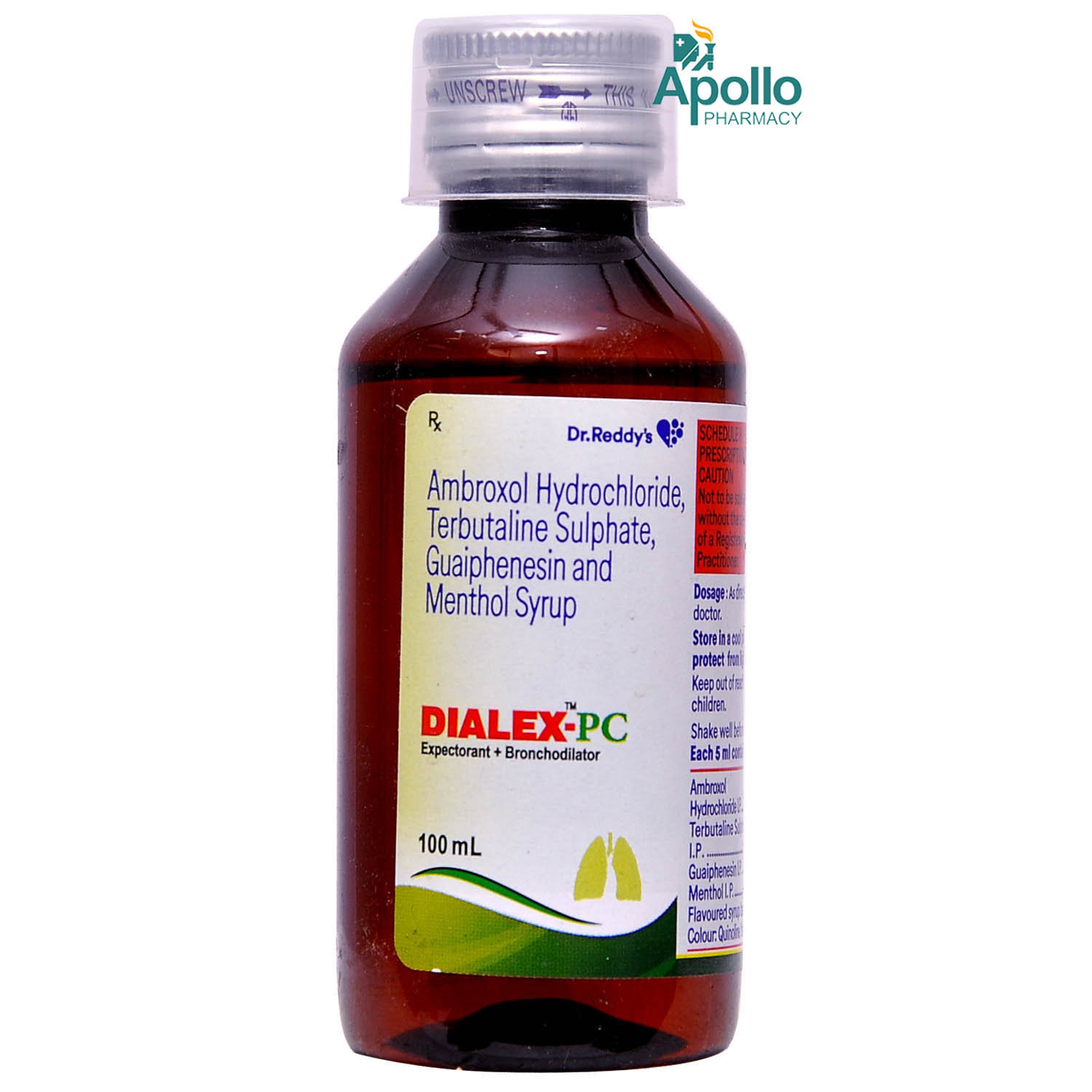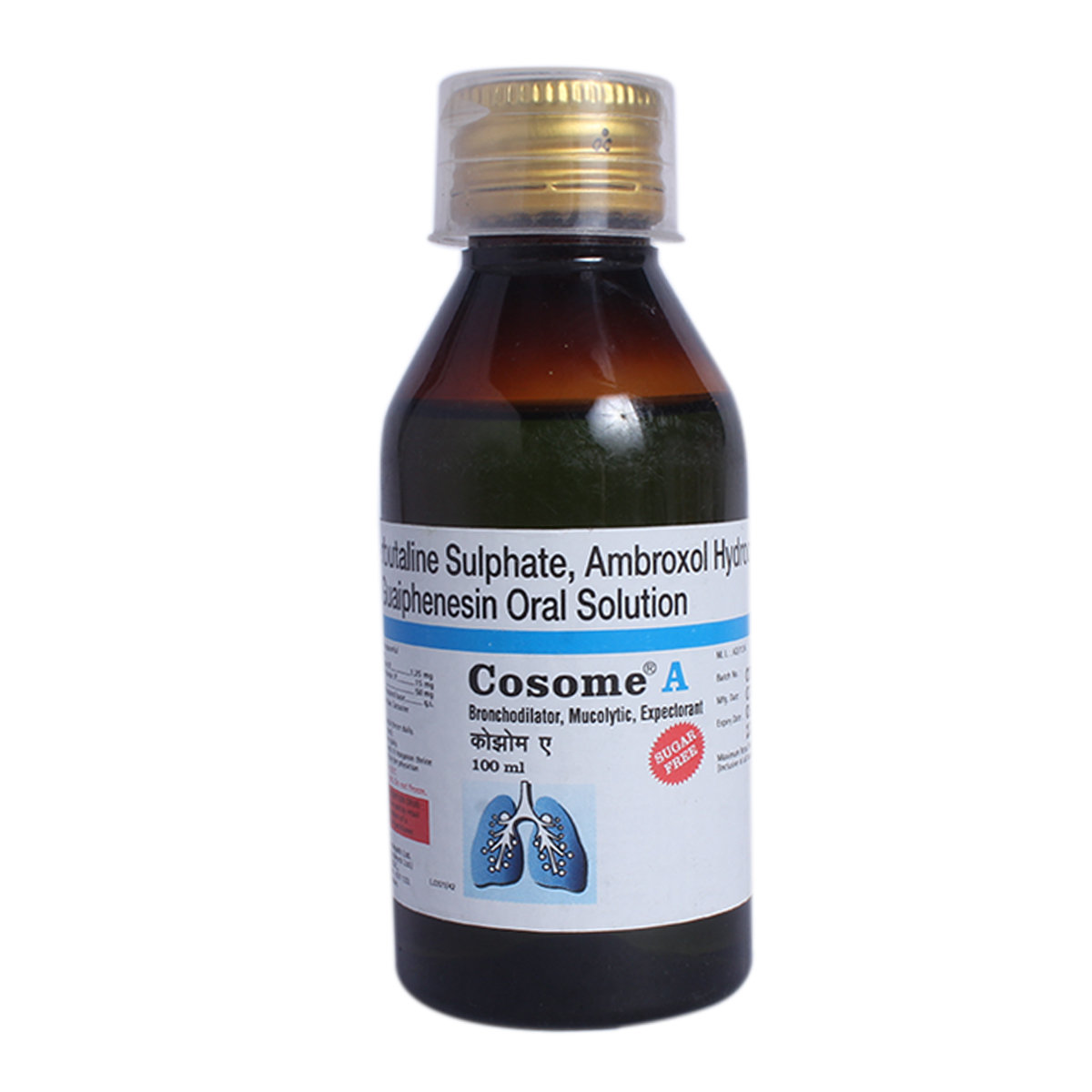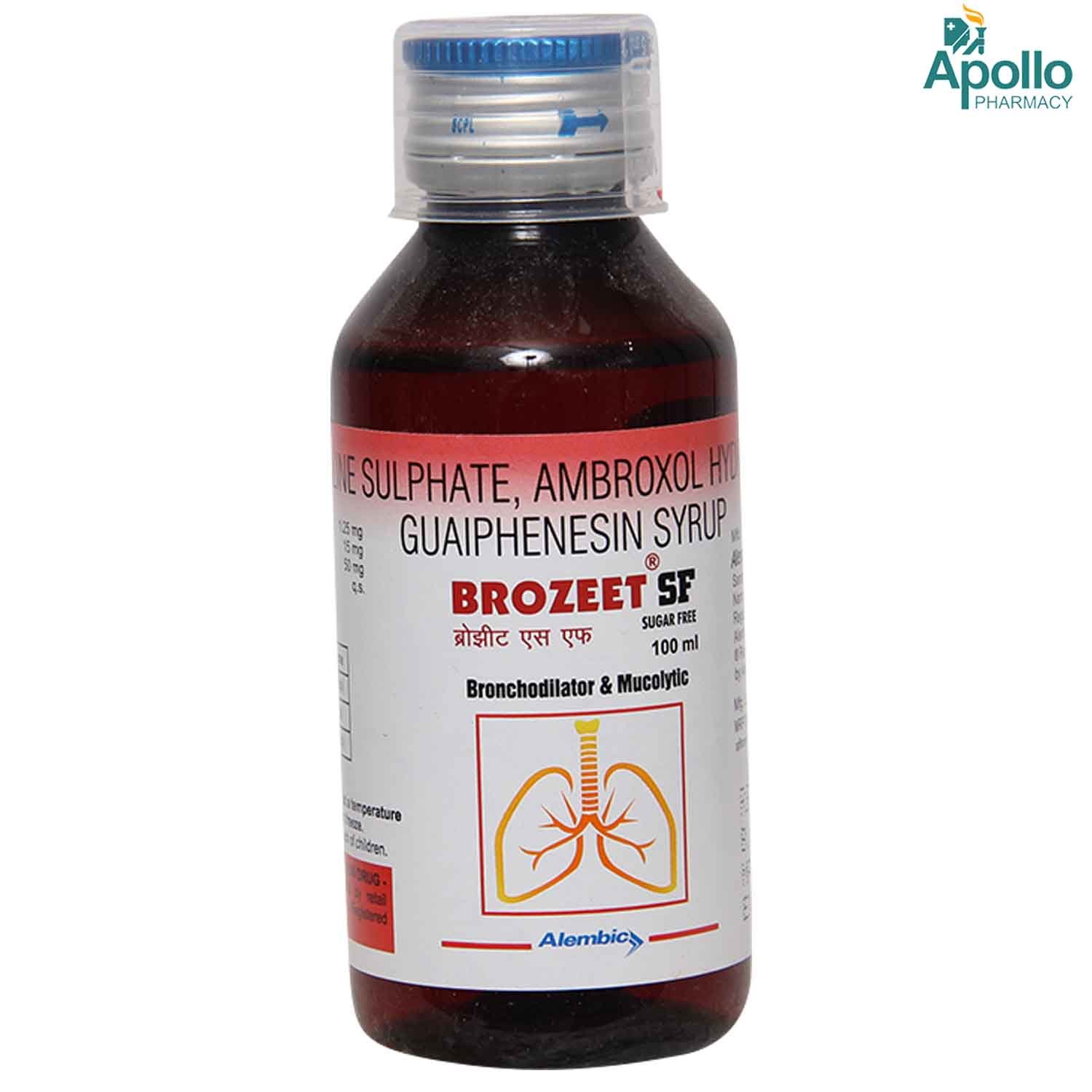- Home
- Ventisol Junior Syrup
Ventisol Junior Syrup Substitute
Ventisol Junior Syrup Substitute
Medicine Composition:
AMBROXOL-15MG+GUAIPHENESIN-50MG+TERBUTALINE-1.25MGAll Substitutes & Brand Comparisons
RX
Out of StockMkof-S Syrup 100 ml
Nexgen Pharma
₹55
(₹0.5/ 1ml)
60% CHEAPERRX
Out of StockFenzodryl-A Cough Syrup 100 ml
Medfence Labs
₹80
(₹0.72/ 1ml)
43% CHEAPERRX
Out of StockEricuf-A Syrup 100 ml
Erika Remedies
₹80
(₹0.72/ 1ml)
43% CHEAPERRX
Kaffi-A Syrup 100 ml
Aingo Pharma Pvt Ltd
₹98
(₹0.88/ 1ml)
31% CHEAPERRX
Lefitus XT Raspberry Flavour Syrup 100 ml
Lefiable Healthcare Pvt Ltd
₹103
(₹0.93/ 1ml)
27% CHEAPERRX
Dialex PC Syrup 100 ml
Dr Reddy's Laboratories Ltd
₹103
(₹0.93/ 1ml)
27% CHEAPERRX
Astharil EX Syrup 100 ml
Zoic Life Sciences
₹111.5
(₹1.0/ 1ml)
21% CHEAPERRX
M-Solvin Syrup 100 ml
Ipca Laboratories Ltd
₹120
(₹1.08/ 1ml)
15% CHEAPERRX
Cosome A Syrup 100 ml
Procter & Gamble Health Ltd
₹125
(₹1.1/ 1ml)
14% CHEAPERRX
Flobery Syrup 100 ml
Florem Pharmaceuticals
₹110
(₹1.1/ 1ml)
14% CHEAPERRX
Eroxidil Sugar Free Syrup 100 ml
Ultratech Pharmaceuticals
₹126.5
(₹1.14/ 1ml)
10% CHEAPERRX
Brozeet Sugar Free Syrup 100 ml
Alembic Pharmaceuticals Ltd
₹133.5
(₹1.18/ 1ml)
7% CHEAPERRX
Out of StockCherrymint Syrup 60 ml
Mint Pharmaceuticals Pvt Ltd
₹75
(₹1.25/ 1ml)
2% CHEAPERRX
Cof-T Syrup 100 ml
Triivik Lifesciences Pvt Ltd
₹150
(₹1.32/ 1ml)
3% COSTLIERRX
Kofarest PD Syrup 100 ml
Centaur Pharmaceuticals Pvt Ltd
₹154.5
(₹1.39/ 1ml)
8% COSTLIER

When Should You Consider Switching from Ventisol Junior Syrup?
Patients may explore substitutes in the following scenarios:
- High monthly cost of Ventisol Junior Syrup
- Non-availability in local pharmacies
- Generic recommendation by a doctor
- Side effects or better tolerability with alternatives
What to Know Before Switching
Before you switch from Ventisol Junior Syrup to another medicine, here are some important points to keep in mind:
Same salt, different brands:
Most substitutes contain the same active ingredient - AMBROXOL-15MG+GUAIPHENESIN-50MG+TERBUTALINE-1.25MG, but the fillers, coating, or manufacturing quality may vary slightly.
Consult your doctor first:
Even if the salt is the same, your doctor can confirm if the substitute is right for your condition, dosage, and health history.
Watch out for allergies or reactions:
Some people may react differently to certain brands due to inactive ingredients. If you notice any side effects, inform your doctor immediately.
Price ≠ effectiveness:
A lower-priced substitute doesn't mean it's less effective. Many generic medicines work just as well as branded ones.
Check the dosage form and strength:
Always match the substitute’s strength (e.g., 5mg, 10mg) and form (tablet, capsule, syrup) with what your doctor prescribed.
Uses
Ventisol Junior Syrup is used in the treatment of Cough. The detailed uses of Ventisol Junior Syrup are as follows:
- Treatment of cough:Ventisol Junior Syrup is commonly used to treat productive cough.
- Cough with mucus: Ventisol Junior Syrup is used to treat cough with mucus in conditions like bronchitis & bronchial asthma, chronic obstructive pulmonary disease (COPD, emphysema & bronchiectasis.
Medicinal Benefits
Ventisol Junior Syrup is a combination of three drugs, namely: Ambroxol, Guaiphenesin and Terbutaline. Ambroxol belongs to the class of mucolytic agents (cough/sputum thinner) that works by thinning and loosening phlegm (mucus) in the lungs, windpipe and nose for coughing out easily. Guaiphenesin belongs to the class of expectorants; it increases the volume of fluid in the airways, reduces the stickiness of mucus, and removes it from the airways. Terbutaline is a bronchodilator that relaxes muscles and widens the airways. Thereby, it makes breathing easier. Together, Ventisol Junior Syrup helps provide relief from cough.
FAQs
The substitutes of Ventisol Junior Syrup contain the same active salt(s) - AMBROXOL-15MG+GUAIPHENESIN-50MG+TERBUTALINE-1.25MG. However, they may differ in price, manufacturing quality, and inactive ingredients. Speak to your doctor to find a suitable option.
Switching to a generic substitute medicine in the place of Ventisol Junior Syrup is often possible if it has the same salt, strength, and dosage form. But always check with your doctor before making any changes to your medication.
Generics versions of Ventisol Junior Syrup are typically more affordable because they don’t include the original brand's research, development, and marketing costs. They contain the same active ingredient and are approved for safety and effectiveness.
Most people don’t notice any difference. However, some may react to different fillers or coatings. If you notice any unusual symptoms after switching, consult your doctor.
Make sure the new medicine has the same active salt, strength, dosage form. Always confirm the change with your doctor or pharmacist.
Substitutes of Ventisol Junior Syrup meet the same safety and efficacy standards as Ventisol Junior Syrup, but small differences in absorption or formulation can exist. A doctor can help you choose the right one for your needs.
Yes. Substitutes of Ventisol Junior Syrup may vary in color, size, or shape due to differences in manufacturing and branding, but this does not affect how they work.
Yes, it’s generally safe to switch between multiple substitutes of Ventisol Junior Syrup if they have the same salt and strength. However, always inform your doctor so they can monitor how your body responds.
Yes, many people safely use substitutes of Ventisol Junior Syrup for long-term treatment. Just ensure it’s done under medical supervision.
If your symptoms stay under control or lab results remain stable, the substitute for Ventisol Junior Syrup is likely working well. Regular follow-ups with your doctor are important.
Absolutely. Even with the same salt, small differences can affect how your body responds when switching from Ventisol Junior Syrup to its substitute. Always consult your doctor before switching.
Ventisol Junior Syrup belongs to the class of medicines called expectorants primarily used to treat cough associated with mucus.
Ventisol Junior Syrup contains Ambroxol, Guaiphenesin and Terbutaline. Ambroxol thins and loosens phlegm (mucus) in the lungs. Thereby, helps to cough out easily. Guaiphenesin increases the volume of fluid in the airways, reduces the stickiness of mucus and helps to remove it from the airways. Terbutaline relaxes muscles and widens the airways. Thereby, making breathing easier.
Ventisol Junior Syrup should be used with caution in hyperthyroid (overactive thyroid) patients as it may worsen the condition. Inform your doctor if you have hyperthyroidism so that the dose may be adjusted appropriately. However, regular monitoring of thyroid hormone levels is recommended while taking Ventisol Junior Syrup.
Ventisol Junior Syrup should be used with caution in diabetic patients if prescribed by a doctor. However, regular monitoring of blood sugar levels is recommended while taking Ventisol Junior Syrup as it may increase blood sugar levels.
You are recommended to take Ventisol Junior Syrup for as long as your doctor has prescribed it. However, if the symptoms persist or worsen with rash, fever or persistent headache after one week of using Ventisol Junior Syrup, please consult your doctor.
No, you are not recommended to stop taking Ventisol Junior Syrup without consulting your doctor, as it may worsen the cough or cause recurring symptoms. Therefore, take Ventisol Junior Syrup for as long as your doctor has prescribed it, and if you experience any difficulty while taking Ventisol Junior Syrup, please consult your doctor.
Ventisol Junior Syrup is primarily used to treat coughs associated with mucus production, such as productive coughs. It helps loosen and thin mucus, making it easier to cough up. However, if you have a dry cough (a non-productive cough where no mucus is present), this medication might not be effective. Instead, consult your doctor for alternative medicines designed to treat dry coughs.
No, Ventisol Junior Syrup is not an addictive or habit-forming medication.
Ventisol Junior Syrup is not recommended if you are allergic to any of its components. Do not take Ventisol Junior Syrup unless advised by your doctor if you are pregnant or breastfeeding, have underlying medical conditions, or take other medications. This will help ensure your safety and the well-being of your unborn baby or child. It's always best to prioritize caution and consult a healthcare professional to avoid potential risks or complications.
No, a higher dose than recommended does not provide additional effectiveness or relief; it can increase the risk of adverse effects.
Store Ventisol Junior Syrup in its original container, keeping it cool, dry, and out of sunlight. Keep it out of the reach of children. Regularly check the expiration date. When you need to dispose of the medicine, remove the label, place it in a plastic bag, and throw it away in the household trash. Remember, never flush the medicine down the toilet or sink to prevent harm to others and the environment.
The common side effects of Ventisol Junior Syrup may include nausea, vomiting, drowsiness, headache, dizziness, nervousness, and stomach upset. Most of these side effects do not require medical attention and gradually resolve over time. However, if the side effects persist or worsen, please consult your doctor.
Shake the bottle well before use. Take the prescribed dose by mouth using the measuring cup/dosing syringe/dropper provided by the pack.
Ventisol Junior Syrup is generally considered safe when used as prescribed by a doctor. However, as with all medications, it may cause side effects and interact with other drugs. To ensure safe use, it's important to follow your doctor's instructions and inform them about any pre-existing and existing medical conditions and your medication history. This will help your doctor determine the appropriate dosage and ensure that Ventisol Junior Syrup is used effectively and safely to treat your respiratory condition.
No, Ventisol Junior Syrup is not an antibiotic. It is a combination medication used to treat cough associated with mucus.
Yes, Ventisol Junior Syrup is considered safe for children when prescribed by a doctor. However, caution is advised, as it may not be suitable for all children. Therefore, always follow the doctor's recommended dosage and avoid self-medication to ensure safety and effectiveness for your children.
Ventisol Junior Syrup is specifically used to treat coughs associated with mucus production. Therefore, it is not usually recommended for dry coughs, which do not involve mucus. Other medications may be more appropriate for dry coughs. Therefore, you must consult a doctor to determine the most suitable treatment for your symptoms.
Ventisol Junior Syrup should not be used if you have certain medical conditions, take specific medications, or are allergic to any of its components. This is because Ventisol Junior Syrup may interact with other medications, worsen certain conditions, or cause allergic reactions. Consulting a doctor before using Ventisol Junior Syrup helps ensure safe usage and minimizes potential risks.
Taking Ventisol Junior Syrup higher than the recommended dose will not be more effective. Instead, it may cause an overdose and increase the risk of serious side effects. Therefore, always take Ventisol Junior Syrup in prescribed doses to treat your condition effectively.
Ventisol Junior Syrup should be stored in a cool, dry place away from sunlight. Keep it out of sight and reach of children.
The common side effects of Ventisol Junior Syrup include skin rash, nausea, vomiting, headache, dizziness, drowsiness, nervousness, tremors, stomach upset, and fast heartbeats. Most of these side effects of Ventisol Junior Syrup do not require medical attention and gradually resolve over time. However, if these side effects persist or worsen, please consult your doctor.
Buy best Respiratory System products by
Cipla Ltd
Glenmark Pharmaceuticals Ltd
Lupin Ltd
Alkem Laboratories Ltd
Sun Pharmaceutical Industries Ltd
Mankind Pharma Pvt Ltd
Macleods Pharmaceuticals Ltd
Zydus Healthcare Ltd
Leeford Healthcare Ltd
Dr Reddy's Laboratories Ltd
Zydus Cadila
Pristine Pearl Pharma Pvt Ltd
Abbott India Ltd
Intas Pharmaceuticals Ltd
Alembic Pharmaceuticals Ltd
German Remedies Ltd
Aristo Pharmaceuticals Pvt Ltd
Centaur Pharmaceuticals Pvt Ltd
Zuventus Healthcare Ltd
Wockhardt Ltd
Micro Labs Ltd
Koye Pharmaceuticals Pvt Ltd
Ipca Laboratories Ltd
GlaxoSmithKline Pharmaceuticals Ltd
Med Manor Organics Pvt Ltd
Seagull Pharmaceutical Pvt Ltd
Torque Pharmaceuticals Pvt Ltd
Blue Cross Laboratories Pvt Ltd
Medishri Healthcare Pvt Ltd
Yash Pharma Laboratories Pvt Ltd
Capital Pharma
Divine Savior Pvt Ltd
East West Pharma India Pvt Ltd
Fourrts India Laboratories Pvt Ltd
Indiabulls Pharmaceuticals Pvt Ltd
Tablets India Ltd
Uniza Healthcare Llp
Adonis Laboratories Pvt Ltd
FDC Ltd
Shreya Life Sciences Pvt Ltd
Corona Remedies Pvt Ltd
Indoco Remedies Ltd
J B Chemicals & Pharmaceuticals Ltd
Unipark Biotech Pvt Ltd
Vasu Organics Pvt Ltd
Intra Life Pvt Ltd
Wings Pharmacuticals Pvt Ltd
Best Biotech
Biological E Ltd
Skn Organics Pvt Ltd
Wanbury Ltd
Apex Laboratories Pvt Ltd
Entod Pharmaceuticals Ltd
Eysys Pharmaceutical Pvt Ltd
Gene Lifecare
Healthgate Pvt Ltd
Icarus Health Care Pvt Ltd
Innoglide Pharmaceuticals Pvt Ltd
Navil Laboratories Pvt Ltd
Stedman Pharmaceuticals Pvt Ltd
Zee Laboratories Ltd
Comed Chemicals Ltd
Lincoln Pharmaceuticals Ltd
Megma Healthcare Pvt Ltd
Precept Pharma
Stryker Pharma Pvt Ltd
Torrent Pharmaceuticals Ltd
Bacans Biotech Pvt Ltd
Dolvis Bio Pharma Pvt Ltd
Elder Pharmaceuticals Ltd
Emcee Pharmaceuticals (P) Ltd
Geno Pharmaceuticals Pvt Ltd
La Renon Healthcare Pvt Ltd
Pfizer Ltd
Prevego Healthcare & Research Pvt Ltd
Sanatra Healthcare Ltd
Timon Pharmaceuticals Pvt Ltd
Balin Healthcare Pvt Ltd
Brinton Pharmaceuticals Ltd
Embiotic Laboratories (P) Ltd
Heal (India) Laboratories Pvt Ltd
Incite Pharmaceuticals
Kepler Healthcare Pvt Ltd
Modi Mundipharma Pvt Ltd
RPG Life Sciences Ltd
Wellok Pharma
Yuventis Pharmaceuticals
Aar Ess Remedies Pvt Ltd
Aglowmed Pharmaceuticals Ltd
Cadila Pharmaceuticals Ltd
Chemo Healthcare Pvt Ltd
Flaring Formulations Pvt Ltd
Foregen Healthcare Ltd
Hibiscus Pharmaceuticals Pvt Ltd
Honest Care Pharmaceuticals
JP Life Science Pvt Ltd
Knoll Pharmaceuticals Ltd
Laborate Pharmaceuticals India Ltd
Rnd Laboratories Pvt Ltd
Silver Cross Medisciences Pvt Ltd







